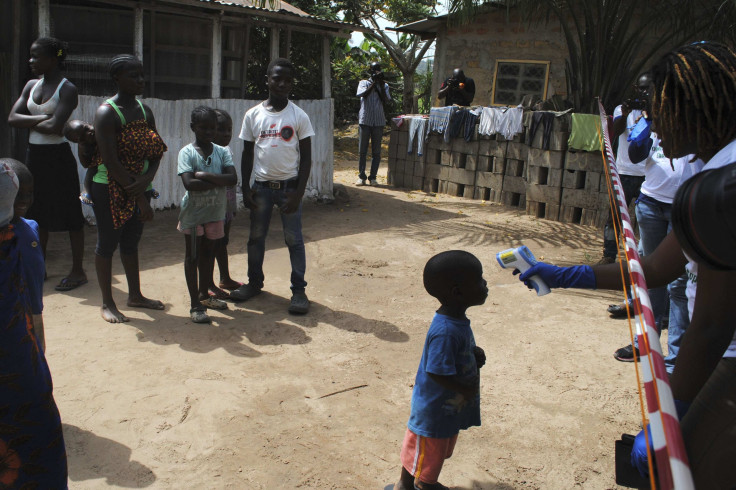Ebola Virus Has Mutated; Scientists Don't Rule Out Potential Jump To Airborne Transmission

This week marks the first since June that the number of new Ebola cases in the three hardest hit African countries — Guinea, Liberia, and Sierra Leone — is under 100, the World Health Organization (WHO) said Thursday. However, it may be too soon to celebrate just yet. Scientists at a French research institute have announced that they have found evidence that the Ebola virus has recently mutated. Whether or not this mutation makes the virus more contagious is still under investigation.
"We know the virus is changing quite a lot," said Dr. Anavaj Sakuntabhai, a human geneticist at Institut Pasteur in France, the BBC reported.
According to Sakuntabhai, doctors are seeing an increase in Ebola cases where the patients show little or no symptoms. "These people may be the people who can spread the virus better, but we still don’t know that yet. A virus can change itself to less deadly but more contagious, and that’s something we are afraid of." However, it’s not clear if there is an actual increase in asymptomatic patients or rather if these numbers were simply not accurately documented in past outbreaks.
Viral mutations are common and bound to occur when the widespread outbreaks occur. On top of that, Ebola is an RNA virus, just like HIV and the flu, and by nature is more susceptible to mutations than other virus varieties. It’s likely that the mutation will cause few changes to the virus's behavior, and the BBC reported that the WHO has commented that many gene mutations may not have any impact on how the virus responds to drugs or behaves in human populations.” However, scientists are testing for the worst case scenario. In this instance, that would be the mutation allowing Ebola to become airborne.
The public is urged not to worry about these recent mutations. As of yet, there is no evidence that the Ebola virus has become airborne. No other blood borne virus has ever become airborne, so this mutation occurring in Ebola would be unlikely. "For the moment the way of transmission is still the same. You just have to avoid contact (with a sick person),” Dr. David Heyman, an infectious disease expert, told the BBC, adding “but as a scientist you can't predict it won't change. Maybe it will."
Currently research is being carried out to measure the extent of Ebola’s recent mutation. To date, around 20 blood samples from Guinea have been genetically sequenced to check for viral changes, but another 600 samples are expected to be processed in the following months.
Asymptomatic patients of any illness are of extra worry to doctors because it’s this small amount of the infected population that is most likely to spread the pathogen. “Such individuals are a hidden threat who would continue to live and move freely within their communities where they could unwittingly transmit infection on to others,” Andrew Lee, senior clinical lecturer at the University of Sheffield in England, wrote in his recent article on these “super-spreaders” for The Independent.
While this outbreak appears to be waning, the truth is outbreaks of the Ebola virus will likely continue to occur in Africa in years to come. Because of this, the best defense against the illness is to have a vaccination available to the global populations.



























